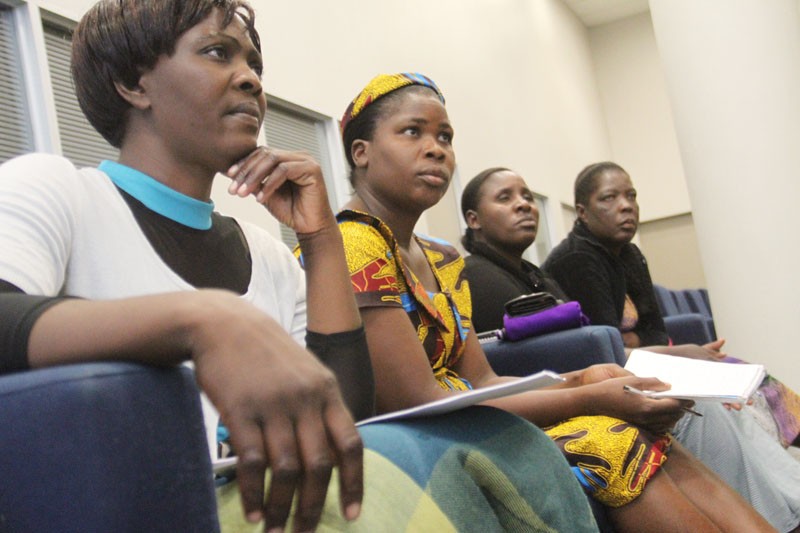Namibian refugee matriarchs stage sit-in at SADC
Mbongeni Mguni | Tuesday November 8, 2016 17:03


The group is part of the estimated 1,000 Namibians residing at the Dukwi Refugee Camp, who fled into Botswana following Namibia’s violent suppression of secessionist activities in the Caprivi Strip in 1998/99.
The women, who said they represented other Namibian women in Dukwi and the more than 300 children born there, said they were prepared to sit in at the SADC headquarters for up to two weeks, until their demands for intervention were met.
The group arrived at the SADC headquarters yesterday at 0600hrs and were allowed into the building shortly after it opened for business, where they asked for an audience with the executive secretary, Dr Stergomena Lawrence-Tax.
The group told Mmegi they had sold and traded their monthly rations to make the trip from Dukwi to Gaborone and were not prepared to leave without “proper answers”.
“We are refugees from Caprivi, colonised by Namibia and we have been in Botswana for 17 years, during which we have been asking SADC to intervene,” Sandrah Simasiku, one of the women, said.
“SADC has been quiet all this time and that’s why we are here to get exactly why they are quiet.”
She said refugees wanted SADC to mediate between Caprivi refugees and the Namibian government, for the recognition of the Strip as a sovereign country, separate from Namibia.
The group showed Mmegi copies of several letters in which refugees repeatedly asked SADC to intervene in their situation.
“We are compelled to seek your intervention because the Caprivi political query has taken more than 50 years as it dates back to the 1960s and 1964, the South African apartheid regime and the South West Africa/Namibia respectively,” one letter from 2012 reads.
“We believe your institution has the capacity to deliberate and engage a mediator in search for a peaceful settlement.”
Botswana, Namibia and the United Nations High Commission for Refugees have been pressing refugees to return to Namibia, after a clause in the settlement agreement was initiated for their repatriation last year.
The refugees successfully challenged a December 31 repatriation deadline in the High Court, arguing that their security will be in peril in Namibia, and accusing that country of scheming to arrest and persecute returnees.
A petition to be delivered to the SADC executive secretary yesterday reiterated the refugees’ requests.
“We are being harassed and humiliated as women by Botswana and Namibia officials, who say we do not know what happened in 1999 since we were not involved and that we must then return home with our children.
“The killings of our brothers, husbands and fathers, do they not affect us the vulnerable and innocent people?” the petition reads.
Another refugee, Violet Nyama said nearly all children in the camp were born in there and faced a bleak future, excluded from the country of their origin.
“Our children are asking us why they are here and where their country is. They are born with birth certificates and no IDs. They only receive UNHCR certificates when they get to school,” said Nyama.
“They say we should go back to Namibia because as women and children, we had nothing to do with the conflict. But how do we just go back without the men who will support us?
“SADC must solve these issues.”
The group said their children had low pass rates and many had turned to prostitution and drugs due to lack of opportunities facing refugees.
Mmegi is informed that by the end of yesterday, the acting SADC executive secretary had attended the group and assured them that their grievances will be assessed to see if the regional group had a mandate. The SADC officials reportedly claimed ignorance about previous letters and petitions written by the refugees.
SADC officials were not available for comment by press time.
The refugees have given SADC three weeks to respond to their latest petition and have vowed to return should they not receive satisfactory redress.
